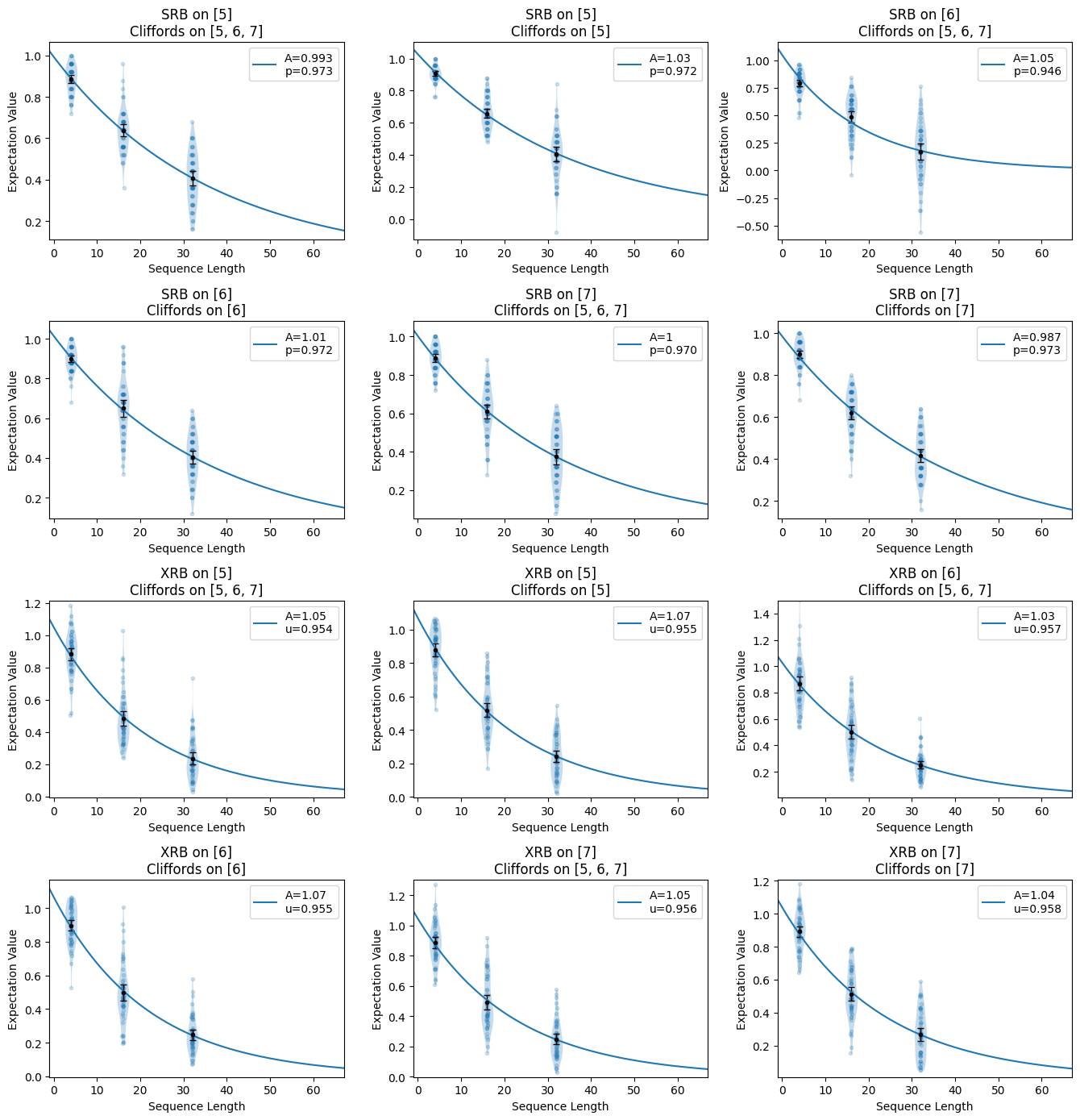Download
Download this file as Jupyter notebook: crosstalk_diagnostics_example.ipynb.
Example: Running CTD
The quality of gates in a device may depend on whether the gates are occurring
simultaneously or in isolation. This can be due to quantum or classical crosstalk. In
this example we use make_crosstalk_diagnostics() to measure this
discrepancy. See also CTD.
[2]:
import trueq as tq
from trueq.simulation.noise_source import NoiseSource
# create circuits for crosstalk diagnostics on qubits 5, 6, and 7 for single-qubit gates
circuits = tq.make_crosstalk_diagnostics([5, 6, 7], [4, 16, 32], 50)
Next, we define a CrossTalk noise source as a subclass of NoiseSource
[3]:
class CrossTalk(NoiseSource):
# this is a simple crosstalk simulator (not based on realistic device physics),
# where adjacent qubits add a fraction of their own gate to the other qubit
def __init__(self, rotations, match=None):
self.rotations = rotations
super().__init__(match=match)
def make_circuit_cache(self, circuit):
return circuit.labels
def apply(self, cycle_wrappers, backend, circuit_cache):
for labels, gate in self.match.iter_gates(cycle_wrappers, noise_only=False):
for label in circuit_cache:
if abs(label - labels[0]) == 1:
# if qubit labels are 1 apart, multiply the other qubit by a small
# fraction of this qubit's gate
backend.process_gate(labels, (gate ** self.rotations[labels[0]]))
elif label == labels[0]:
# simulate the entire gate on this qubit
backend.process_gate(labels, gate)
cycle_crosstalk = CrossTalk(rotations={5: 0.01, 6: 0.045, 7: 0.03})
sim = tq.Simulator().add_stochastic_pauli(pz=0.02)
sim.append_noise_source(cycle_crosstalk)
sim.run(circuits)
Show all of the decay curves.
[4]:
circuits.plot.raw()

Compare the fitted results on a plot. We see that process infidelities (SRB) in the
simultaneous case are higher because of the crosstalk noise added by our simulator.
However, the stochastic infidelity (XRB) is the same for both simultaneous and
isolated experiments. This is due to the shared stochastic noise model
add_stochastic_pauli(pz=0.02).
[5]:
circuits.plot.compare_rb()

Download
Download this file as Jupyter notebook: crosstalk_diagnostics_example.ipynb.
